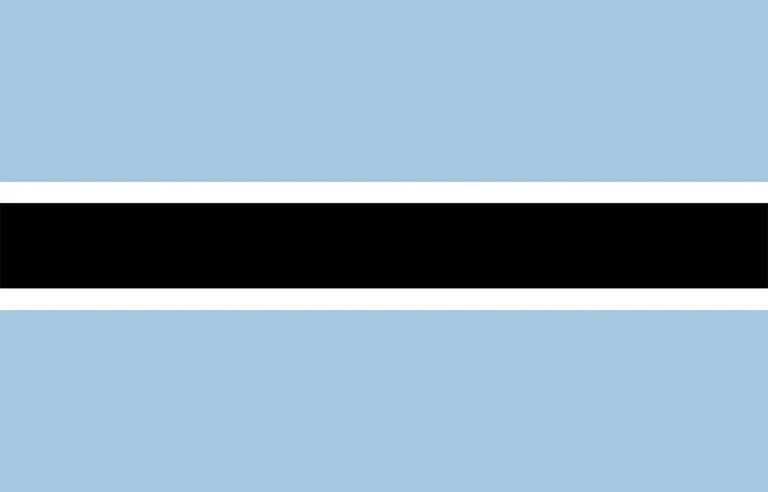Botswana
From Wikipedia


The Republic of Botswana, is a landlocked country in Southern Africa. Botswana is topographically flat, with approximately 70 per cent of its territory part of the Kalahari Desert. It is bordered by South Africa to the south and southeast, Namibia to the west and north, Zambia to the north and Zimbabwe to the northeast. With a population of slightly over 2.4 million people and a comparable land area to France, Botswana is one of the most sparsely populated countries in the world. It is essentially the nation-state of the Tswana people, who constitute nearly 80 per cent of the population.
The Tswana ethnic group are descended mainly from Bantu-speaking peoples who migrated into southern Africa, including modern Botswana, in several waves before AD 600. In 1885, the British colonised the area and declared a protectorate named Bechuanaland. As part of the Decolonisation of Africa, Bechuanaland became an independent Commonwealth republic under its current name on 30 September 1966. Since then, it has been a parliamentary republic with a consistent record of uninterrupted democratic elections, although the Botswana Democratic Party has been the only ruling party from independence until 2024. As of 2024, Botswana is the third-least corrupt country in Africa, according to the Corruption Perceptions Index published by Transparency International.
The economy is dominated by mining and tourism. Botswana has a per capita GDP (purchasing power parity) of about $20,158 as of 2024. Botswana is the world's biggest diamond-producing country. Its relatively high gross national income per capita (by some estimates the fourth-largest in Africa) gives the country a relatively high standard of living and the second-highest Human Development Index of continental Sub-Saharan Africa (after South Africa). Botswana is a member of the Southern African Customs Union, the Southern African Development Community, the Commonwealth of Nations and the United Nations.
Nassouh GSPI
Assessing global strength through various metrics.
contact us
gspi@nassouh.com
© 2025. Nassouh, All rights reserved.
